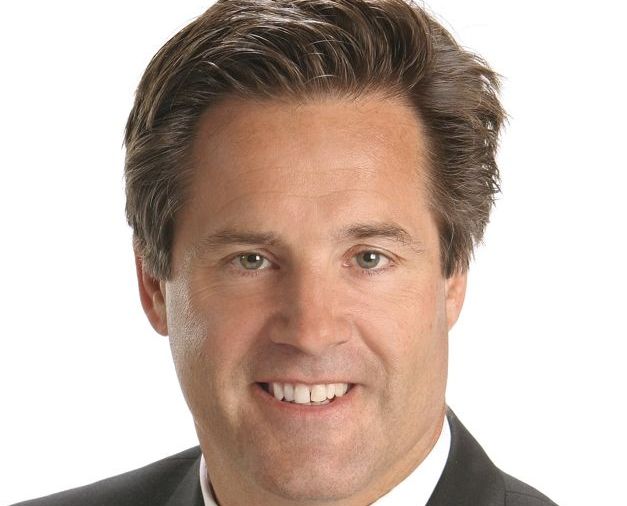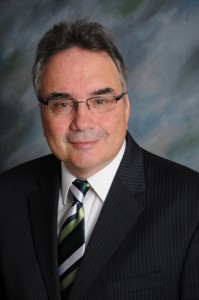Personal Finance
One of the most significant financial events is taking place before our very eyes, and yet not many are paying attention to it, says Louis Gave, CEO of the well-respected GaveKal Research.
 After the Lehman collapse in 2008, firms around the world suddenly canceled orders to China, causing Chinese exports to collapse by 30%. With the US dollar acting as the world’s reserve currency, greasing the gears of international trade, suddenly those dollars became scarce as the US banking system paralyzed credit around the globe. This led China to ask, “Why should badly managed banks in the US affect our trade with other countries?”
After the Lehman collapse in 2008, firms around the world suddenly canceled orders to China, causing Chinese exports to collapse by 30%. With the US dollar acting as the world’s reserve currency, greasing the gears of international trade, suddenly those dollars became scarce as the US banking system paralyzed credit around the globe. This led China to ask, “Why should badly managed banks in the US affect our trade with other countries?”
Not wanting to suffer the same consequences again, China has since responded by conducting trade agreements with its partners to trade not in the world’s reserve currency, the US dollar, but with its own currency: the renminbi. As a result, “In the past five years, China has moved from 0% renminbi and 100% US dollars to, now, 18% denominated in renminbi. That’s a massive, massive change,” says Gave.
“The internationalization of the renminbi, the creation of the RMB bond market, is one of the most important financial developments of the past decade,” he says.
…..read more HERE
 In the mid-1970s, an investor with tremendous business experience, Warren Buffett, became the business “coach” and confidant of the Washington Post‘s Katharine Graham. Graham became chairman and CEO of the newspaper company unexpectedly when her husband committed suicide. She leaned heavily on Buffett’s business judgment – especially when it came to the question of how to manage the business fund. Buffett addressed that critical question in a private letter to Graham.
In the mid-1970s, an investor with tremendous business experience, Warren Buffett, became the business “coach” and confidant of the Washington Post‘s Katharine Graham. Graham became chairman and CEO of the newspaper company unexpectedly when her husband committed suicide. She leaned heavily on Buffett’s business judgment – especially when it came to the question of how to manage the business fund. Buffett addressed that critical question in a private letter to Graham.

This is our first live webinar and due to the contraints of the technology only the first 500 listeners will be able to register.
Michael Campbell
HOW TO REGISTER
1) CLICK HERE to register or paste this address into your browser – https://www.disnat.com/en/knowledge/event_register.aspx?EventId=d2dac22c-40ff-47f3-b4d3-1da8962fc850
2) Once you click Submit you will be sent an email with the subject – Web seminar scheduled: Market Overview with Disnat GPS Portfolio Strategist. This email will include the link you will use to join the webinar on Saturday. The webinar will begin immediately after the show at 10:15am pacific time on Sat Sept 14th. You will be able to join the webinar as soon as the show starts at 8:30am Pacific.
HOW TO JOIN ON SATURDAY
1) Open your confirmation email and CLICK on the link
Enter your name and email. The event password is – DISNAT.
Click Join Now.
Confirm your email address and click Submit
2) JAVA requirement – If you do not have Java on your computer the system will ask you to add this small, free piece of software.
CLICK Use Java link
CLICK Run
At this point you should be able to see the workshop slides on your screen
You can adjust the volume on the page to hear through your computer speakers.
*N.B. If you cannot hear through your computer you can listen over the phone!
Dial 1-866-699-3239
Enter 667 097 102
If you are having any difficulties please feel free to call the Disnat Customer Service at 1-866-873-7103 or call the MoneyTalks office 1-877-926-6849
If you would like more detailed instructions CLICK HERE for a complete visual demonstration.

»» Equities rose and safe-haven bonds fell following solid economic data across regions—U.S. employment report aside.
»» Weak job gains are unlikely to derail the Fed’s tapering plans.
»» For 10-year Treasuries, 3% is set to become the new 2%. That has far reaching implications across regions. Investors should position portfolios accordingly. (page 3)
»» Global Roundup: Overview of Canada’s strong employment report. Is the market ahead of itself regarding the BOE’s easing bias? Interesting comments by Chinese officials about local government debt. (pages 3-4)
For the complete Weekly Report as well as Daily Updates CLICK HERE.
 A result like this hasn’t surprised me for years because one man showed me that the stock market is not remotely close to what so many have tried to make us think it is. Heck, not even 1 out 4 so-called money managers can even match or surpass the index they’re matched up again (translation – better to buy an index fund versus any other).
A result like this hasn’t surprised me for years because one man showed me that the stock market is not remotely close to what so many have tried to make us think it is. Heck, not even 1 out 4 so-called money managers can even match or surpass the index they’re matched up again (translation – better to buy an index fund versus any other).
As noted in my book, one man would forever change the way I look at finances. Frank Congilose taught me that 99% of all so-called advisers will fail—not because they’re dishonest but because their approached is badly flawed. And Frank is the only person I ever met among the thousands over 30 years that is both very bright and very honest. In my experience, an especially smart person usually tries to push the envelope (if not go into gray areas), and if they happen to be the minority that is totally honest, they are far from “Rocket Scientists.”
It was about 15 years ago when Frank first ruined my day by basically showing me everything I was told in the first half of my career was doomed to fail. He then proceeded to show me a process that truly offers far less risk, an opportunity for a far better lifestyle and no additional capital in order to achieve goals. That’s the good news.
The downside to this “process” is while it teaches how to make one dollar do the work of two or three, it can’t make a Chevy into a Cadillac. Money doesn’t grow on trees no matter how much Wall Street and Madison Avenue would like you to believe so. Sadly, the multiple effects tend to favor them greatly over you.
It took 30 years and losses of millions of dollars for me to finally truly get it despite already knowing this to be the case; look at any 100 people with wealth and you will discover they mainly acquired it only three ways:
- They inherited it
- Owned business(es)
- Bought commercial real estate
For the vast majority, the only way the stock market played a major role in acquiring the wealth was they either worked for a publicly held company and were granted stock options at discounted prices and sold them, or they were truly insiders and were already out or getting out when the masses were getting in. In my 30 years I’ve yet to meet anyone who said, “Mom and dad put some money in the market every year and ended up with millions.” Sadly, I’ve come to realize that if you truly want to end up with a million in the market, start with two!
In my 30 years in and around the stock market, I’m extremely disgusted to say it doesn’t come close to resembling what it was when I first entered it 30 years ago—a place to buy and sell part ownerships of businesses. Instead, it has become a notorious casino-like place where not only is the playing field greatly tilted against you, but where the vast majority of the so-called professionals can’t even beat index funds.
I want you to read these various articles and watch this video. It’s just a small sampling of the proof I believe clearly demonstrates why making the stock market the driving force to reach your financial goals like retirement, college educations, etc. is destined to fail…even if you’re fortunate enough to find one of the few financial advisers who put your financial needs above their own.
The alternative process I speak of is not driven by chasing net worth, a bad strategy on which the “Don’t Worry, Be Happy” crowd has spent tens of billions of advertising dollars to dupe investors into believing. You’ve seen that commercial about people carrying around a sign noting their net worth goals. It’s a nice thought but the real world will never let the vast majority of them come close to achieving their “number.” Ask any successful business person what was his or her key to success and they will say managing “cash flow” properly.
No one has understood the importance of making money work for you versus you working trying to make money than banks. What do they manufacturer or produce? Zip! Willie Sutton was a famous bank robber and was quoted as saying, “I rob banks because that’s where the money is.” Willie was half right, but instead of robbing them he should have opened one.
Banks open their doors and allow you to come in and deposit your money with them. They don’t even have to offer toasters anymore for you to keep it there and with such little interest paid these days one should get something much more than a toaster. Did you know the average deposit stays in a bank long enough for them to lend that money out 3 or four times at different interest rates charged to the borrower depending on what kind of loan they took out? If they don’t get crazy with their loans, banks have mastered making one dollar do the work of several with little or no risk. Our process shows you how to be like the banks, have similar very low risk and best of all, live a much better lifestyle.
If you’re looking to turn $1 into a $100, please look elsewhere. As I stated earlier, this process can’t turn a Chevy into a Cadillac, but it can make your Chevy run far more efficiently and effectively and with much less risk than you’re currently undertaking.
The only qualification is the necessity to have a single or family income of at least $150k a year and/or a net worth of at least $1 million+. If you meet these qualifications and live in North America, email me at peter@grandich.com and I will tell you how to get started with the process.
Now, if you don’t meet the qualifications or don’t wish to move forward at this time, please allow me to recommend two books written by financial mentor, Frank Congilose.
I look forward to hearing from those who meet the qualifications and truly are serious about reaching their financial goals.












